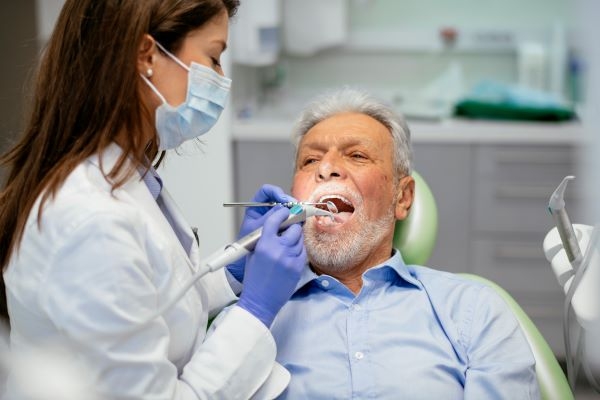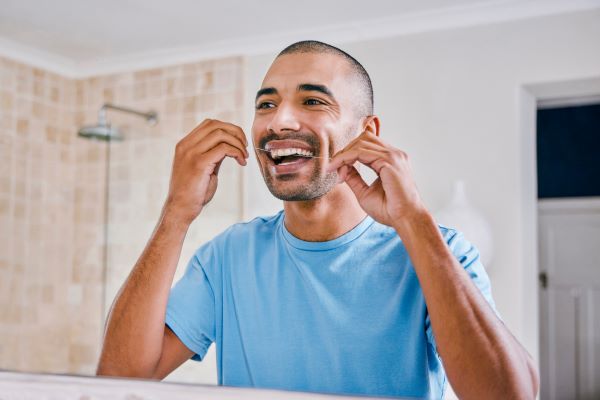-
When Tom Bowman was diagnosed with testicular cancer at the age of 28, he was devastated. A cancer diagnosis is always shocking news, especially considering Tom’s age, and he had a family history of cancer so was all too aware of the challenges that lay ahead.
Tom was later given the news that the cancer had spread to his lungs, and that he would require surgery to remove the tumours. The thought of telling his friends about the diagnosis felt too overwhelming, so he turned to social media instead.
“I had intended it as a ‘you won't be seeing me for a few weeks’ message, as I couldn't deal with having to notify all the people in my life about what was happening. The response I received from everybody was one of the most overwhelming experiences of my life… people essentially saying they cared and they were there for me. In what was the most difficult time of my life, this support certainly helped,” Tom shared.
Cancer: it’s more than just physical
Putting it out there in the beginning was a positive experience for Tom, but he says that cabin fever, or loneliness, can be a social side effect of having cancer:
“Due to the chemotherapy you have a compromised immune system. Getting into contact with people means you are at a significantly higher risk of contracting something, and your energy levels and pain can prevent you from going out.”
“I had numerous friends come over and watch movies, play games or spend time with me. I really appreciated this as that would often be the extent of my social interaction for the week (apart from the nurses and my family). I also had some friends come over to give me food and help around the house.”
What to do if your friend has cancer
If someone you care about has been diagnosed with cancer, you probably have plenty of questions, like: should I show sympathy? Would they prefer to be left alone? What can I do to help?
Tom just wanted to be treated normally, and from someone who’s been there his advice is simple:
- Just be there as a friend, and keep things as normal as possible. Knowing you are there can make a huge difference. Send a message saying “I’m thinking of you” and maintain normal conversation. Keeping social connections strong can help support your friend’s mental wellbeing.
- Show compassion, but not pity. Tom says that sometimes when his friends tried to empathise and show compassion, it came across as pity. He found it very difficult to deal with people viewing him as hard done by, and often made him avoid social interaction.
- Be a good listener. For people with cancer there will be a whole range of physical and mental issues that you may not be aware of. It’s important to let them know that it’s okay to talk about anything and everything.
- Think before you share. As well as the physical toll, your friend may be feeling mentally or emotionally vulnerable as well. Despite good intentions, suggesting alternative therapies or recounting negative stories probably won’t help your friend. “I received stories from people regarding those they knew that the treatment hadn't worked for. I know this was done to show they care and were trying to relate to me, however during this experience, what I really needed was positive stories. Examples of it not working aren't the best for a patient’s mental state,” Tom said.
Tom found strength in the people around him, including — to his surprise — his work colleagues: “Once word of my health got to my coworkers, they asked around for donations, and along with cards and messages I received a rather large amount of money as a gift from them. As a new homebuyer this really helped me out. I also felt very welcomed and supported by everybody on my return to work. I wasn't able to do everything I could before and everybody has been so understanding.”
Tom has now successfully completed his chemotherapy. His surgeons say they were able to remove all of the cancerous mass and that there is no sign of it having spread anywhere else.
At this stage he’s cautiously optimistic. Staying positive, and surrounding himself with positive people, has been a huge part of his journey.
“I’ve been able to maintain a positive mindset throughout this experience and I feel I am a stronger person as a result of everything I’ve been through. I’m looking forward to what the future holds for me.”
My friend has cancer. How do I help?

-
Do you need an electric toothbrush?
Which toothbrush scrubs up best?
-
Dietitian, nutritionist or naturopath: What’s the difference?
Who should you see for professional dietary advice?
-
5 ways to eat healthy while travelling
Come home feeling refreshed, fit and energised.
-
How often should you get your teeth cleaned?
We spoke to Medibank Members’ Choice Advantage dentist Dr Jonathan Cichero to find out.
-
Daily habits for good oral health
Do you really need to floss? Is an electric toothbrush better than a manual one? Find out which habits to make (and which ones to break) for better oral health.
-
How to conquer your fear of the dentist
Dr Merrilyn Hooley's tips for a less stressful dental appointment.
Subscribe to receive the best from Live Better every week. Healthy recipes, exercise tips and activities, offers and promotions – everything to help you eat, move and feel better.
By clicking sign up I understand and agree to Medibank's privacy policy






